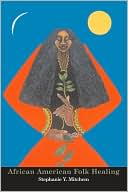Category Books
- Fiction Books & Literature
- Graphic Novels
- Horror
- Mystery & Crime
- Poetry
- Romance Books
- Science Fiction & Fantasy
- Thrillers
- Westerns
- Ages 0-2
- Ages 3-5
- Ages 6-8
- Ages 9-12
- Teens
- Children's Books
- African Americans
- Antiques & Collectibles
- Art, Architecture & Photography
- Bibles & Bible Studies
- Biography
- Business Books
- Christianity
- Computer Books & Technology Books
- Cookbooks, Food & Wine
- Crafts & Hobbies Books
- Education & Teaching
- Engineering
- Entertainment
- Foreign Languages
- Game Books
- Gay & Lesbian
- Health Books, Diet & Fitness Books
- History
- Home & Garden
- Humor Books
- Judaism & Judaica
- Law
- Medical Books
- New Age & Spirituality
- Nonfiction
- Parenting & Family
- Pets
- Philosophy
- Political Books & Current Events Books
- Psychology & Psychotherapy
- Reference
- Religion Books
- Science & Nature
- Self Improvement
- Sex & Relationships
- Social Sciences
- Sports & Adventure
- Study Guides & Test Prep
- Travel
- True Crime
- Weddings
- Women's Studies
African American Folk Healing » (New Edition)

Authors: Stephanie Mitchem
ISBN-13: 9780814757321, ISBN-10: 0814757324
Format: Paperback
Publisher: New York University Press
Date Published: July 2007
Edition: New Edition
Author Biography: Stephanie Mitchem
Stephanie Mitchem is associate professor of religious studies and women's studies at the University of South Carolina. She is the author of Introducing Womanist Theology, as well as African American Women Tapping Power and Spiritual Wellness.
Book Synopsis
Cure a nosebleed by holding a silver quarter on the back of the neck. Treat an earache with sweet oil drops. Wear plant roots to keep from catching colds. Within many African American families, these kinds of practices continue today, woven into the fabric of black culture, often communicated through women. Such folk practices shape the concepts about healing that are diffused throughout African American communities and are expressed in myriad ways, from faith healing to making a mojo.
Stephanie Y. Mitchem presents a fascinating study of African American healing. She sheds light on a variety of folk practices and traces their development from the time of slavery through the Great Migrations. She explores how they have continued into the present and their relationship with alternative medicines. Through conversations with black Americans, she demonstrates how herbs, charms, and rituals continue folk healing performances. Mitchem shows that these practices are not simply about healing; they are linked to expressions of faith, delineating aspects of a holistic epistemology and pointing to disjunctures between African American views of wellness and illness and those of the culture of institutional medicine.
Publishers Weekly
Mitchem, who teaches religious studies at the University of South Carolina, explores folk healing as a "faith expression" in black communities. While she includes some of the remedies used by African-Americans (e.g., to lower your blood pressure, put Spanish moss in your drink), her research goes far beyond collecting cures. Indeed, Mitchem argues that for African-Americans healing practices are part of a larger system of meaning, one that is sometimes in conflict with institutionalized medicine. Black folk healing has persisted in part because a racist society has long denied adequate care to black people-folk healing, Mitchem persuasively argues, allows African-Americans agency "in defining their own bodies, exerting some control over life." But even when African-Americans can find equitable medical care, folk practices will persist because they are life-giving and because they holistically address physical, economic and spiritual needs. Mitchem could have offered a more robust analysis of the commodification of folk medicine-she notes that a Detroit "Hoodoo 101" class cost $75, but fails to adequately probe the meeting of folk medicine and the marketplace. That omission is a minor flaw in a fascinating study that makes a real contribution to discussions of health, wellness and faith in America. (July)
Copyright 2007 Reed Business InformationTable of Contents
Subjects
 African American - General & Miscellaneous
African American - General & Miscellaneous  Folklore & Mythology
Folklore & MythologyAfrican Americans
 African American - General & Miscellaneous
African American - General & Miscellaneous  General & Miscellaneous
General & MiscellaneousAfrican Americans
 African American - General & Miscellaneous
African American - General & Miscellaneous  Religion
ReligionAfrican Americans
 African American - General & Miscellaneous
African American - General & Miscellaneous  Social Conditions
Social ConditionsChristianity
 All Religion
All Religion  General & Miscellaneous Religion
General & Miscellaneous ReligionNonfiction
 Social Sciences
Social Sciences  Anthropology & Archaeology
Anthropology & ArchaeologyNonfiction
 Social Sciences
Social Sciences  Ethnic & Minority Studies
Ethnic & Minority StudiesNonfiction
 Social Sciences
Social Sciences  Folklore & Mythology
Folklore & MythologyNonfiction
 Social Sciences
Social Sciences  Regional Studies
Regional StudiesNonfiction
 All Nonfiction
All Nonfiction  Anthropology & Archaeology
Anthropology & ArchaeologyReligion Books
 All Religion
All Religion  General & Miscellaneous Religion
General & Miscellaneous ReligionScience & Nature
 Social Sciences
Social Sciences  Anthropology & Archaeology
Anthropology & ArchaeologyScience & Nature
 Social Sciences
Social Sciences  Ethnic & Minority Studies
Ethnic & Minority StudiesScience & Nature
 Social Sciences
Social Sciences  Folklore & Mythology
Folklore & MythologyScience & Nature
 Social Sciences
Social Sciences  Regional Studies
Regional StudiesSocial Sciences
 Anthropology & Archaeology
Anthropology & Archaeology  Anthropology
AnthropologySocial Sciences
 Ethnic & Minority Studies
Ethnic & Minority Studies  Ethnic & Minority Studies - United States
Ethnic & Minority Studies - United StatesSocial Sciences
 Folklore & Mythology
Folklore & Mythology  North American Folklore & Mythology
North American Folklore & MythologySocial Sciences
 Regional Studies
Regional Studies  United States Studies
United States StudiesChristianity
 Christianity
Christianity  All Religion
All ReligionNonfiction
 Religion
Religion  All Religion
All ReligionReligion Books
 Christianity
Christianity  All Religion
All Religion
